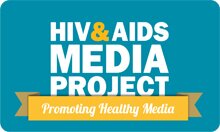2000: Presidential Advisory Panel
On 28 February 2000, special advisor to the health ministry Dr Ian Roberts announced plans to convene an international panel in South Africa that would assess, amongst other things, the scientific evidence that HIV caused AIDS. The panel was split between doctors who held the traditional view that HIV caused AIDS and doctors who questioned this view, including prominent denialists Peter Duesberg and David Rasnick.
In March 2000, presidential spokesperson Parks Mankahlana told the Village Voice that the panel would look into "everything about AIDS", from the merits of various treatments such as AZT to "whether there's this thing called AIDS, what it is, whether HIV leads to AIDS, whether there is something called HIV, for an example. All these questions".
Later that month, Mankahlana seemingly clarified the president's position with a column in the South African Business Day issued from his capacity as "Head of Communications — President Mbeki's Office". "HIV/AIDS is not going to succumb to the machinations of the profiteering pharmaceuticals and their propagandists," wrote Mankahlana, likening the drug companies to the "marauders of the military industrial complex" that had benefited through the arms race during the Cold War.
"The President has authorised an international panel to be instituted to broaden the search for solutions. The international panel must strive to give us answers to all the unknowns. They must attempt to unravel the ‘mysteries' of HIV/AIDS, including and more especially what the profit-takers cannot tell us." The panel's final report, published in 2001, showed that it had failed to reach consensus on a number of issues, including the link between HIV and AIDS (see full report), and was widely criticised in the local and international press as a waste of time and money.
"It confirms the fact that this international advisory panel was never going to provide proper advice in the fight against HIV-AIDS in South Africa," said Mark Heywood of the Aids Law Project in a Reuters report. "Its recommendations are limited, confusing and damaging to public health in the further recommendations doubting the efficacy of HIV tests."






